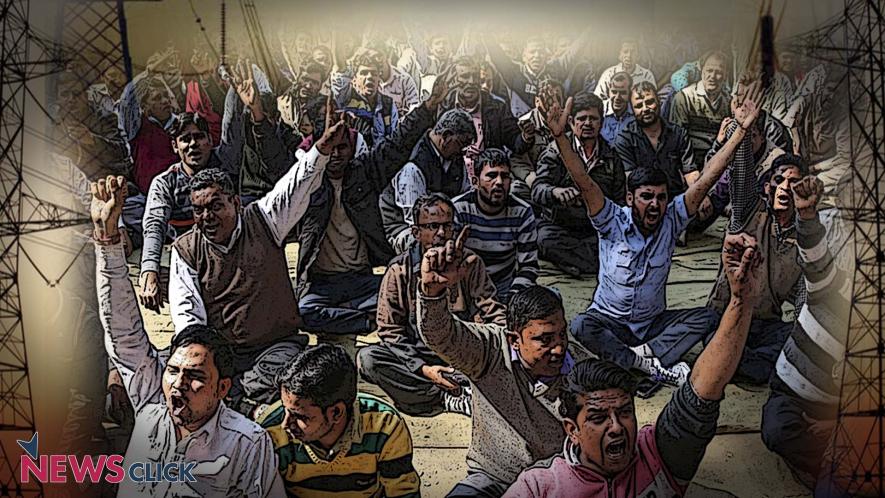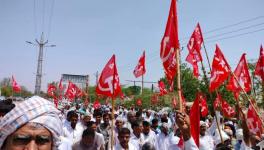Power Sector Employees Intensify Stir Against Electricity (Amendment) Bill, Hold Conference In Patna

Newsclick Image by Sumit Kumar
Power sector employees are continuing to build on their resistance to the Electricity (Amendment) Bill 2014, which seeks to extend privatisation to power distribution.
On 30 January 2018, the National Coordination Committee of Electricity Employees and Engineers (NCCOEEE) — a platform of all unions and federations in the power sector with over 2.5 million members — held its eastern region conference in Patna.
This is part of its massive campaign to mobilise support against the amendment Bill, which the power ministry is looking to push in the forthcoming Budget session of Parliament (which takes place in two parts, first in February, then in April/May).
The NCCOEEE members discussed strategies to fight back with a united country-wide struggle against the government’s move to bring in the amendment, while also discussing the already destructive impact of the Electricity Act 2003, which the Bill seeks to amend.
The Electricity (Amendment) Bill wants to bifurcate the distribution function of the power sector into carriage (infrastructure) and the actual sale. It proposes that a government company lay down the wires (distribution network), while private companies compete over selling the electricity to consumers and earn profits.
This essentially means that the profits will be privatised while the losses are nationalised.
The Electricity Act 2003 had dismantled the State Electricity Boards (SEBs) and replaced them with three separate entities catering to generation, transmission and distribution.
The 2003 Act was following the World Bank model of “unbundling” of the power sector, so as to to allow private players into the safer and more profitable aspects, such as generation.
Indeed, a large number of private companies entered power generation, even as transmission and distribution remained with the state governments – except for Odisha and Delhi, where distribution was also privatised, and where it failed spectacularly. Although some states, such as Himachal Pradesh, had resisted the unbundling, Kerala remains the only state that has not trifurcated its electricity board.
The state-owned distribution companies are already burdened with losses over Rs 4.14 lakh crore while their debt has risen to Rs 4.22 lakh crore as of 2015-16, because they have no control over the cost of generation and are paying thousands of crores to private sector generators, without using even a single unit of electricity due to faulty power purchase agreements.
On 28 December, the NCCOEEE held the northern region conference in Chandigarh. The southern region conference in Trivandrum was held on 11 January 2018, while conferences in Mumbai and Guwahati will be held soon.
The meeting unanimously decided the following programmes in the first phase of its oppostion:
1) State conventions of NCCOEEE should be completed before 28 February 2018
2) Rally in state capitals on 14 March 2018. Common memorandum to be sent to PM and state CMs and Power Ministers.
3) Parliament Rally at Delhi on 3 April 2018
4) In the event of government attempting to pass the Electricity (Amendment) Bill 2014, lightning strike will be resorted to all the country.
Those who addressed the meeting included Prasanta N Chowdhury, general secretary of the Electricity Employees Federation of India and Shailendra Dubey, chairman of the All India Power Engineers’ Federation, among other representatives from the electricity sector.
Get the latest reports & analysis with people's perspective on Protests, movements & deep analytical videos, discussions of the current affairs in your Telegram app. Subscribe to NewsClick's Telegram channel & get Real-Time updates on stories, as they get published on our website.
























